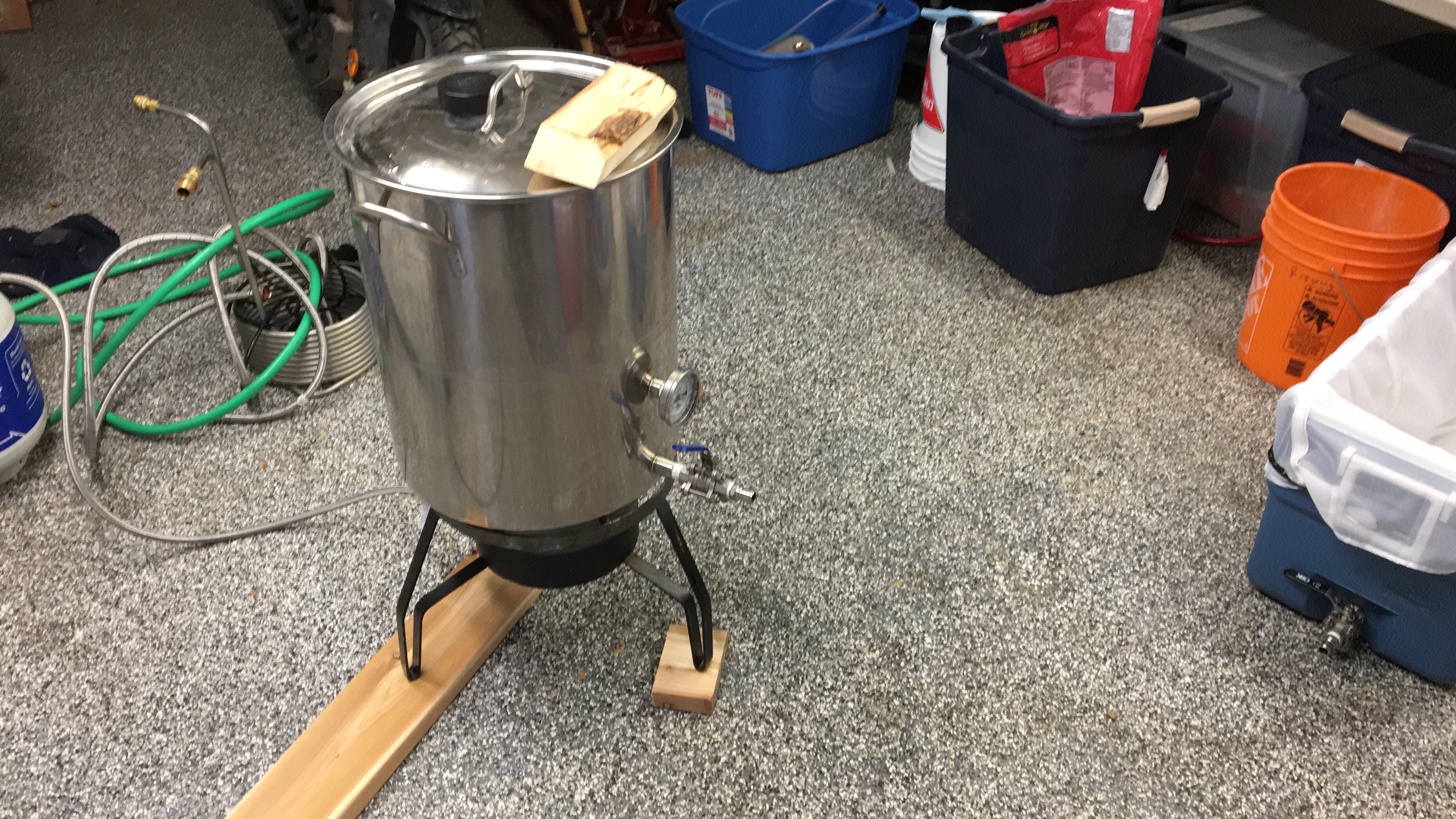This is an interesting case so I wanted to participate. There are a few factors I believe are killing efficiency in a fly sparge here. First, with a 16" diameter mash and only a 10" diameter drain cavity, your sparge is channeling at LEAST to the 10" disc. So, out of potentially 200 square inches you're only using 80 to drain. The area of the bag resting on keg material is not draining. To fix this, you can put in a 15" diameter rack. The other problem is that the mash itself was likely wider than it was tall so it made the channeling worse.
That makes perfect sense now that I see it. When I was considering how to do the drain I was only concerned with not having too much space under the grain bed. I read some other posts where guys had issues with too much liquid underneath and they had to adjust volumes to keep the grain bed properly soaked. I read something about using a smaller diameter FB that would sit lower and at the time THAT made sense too. What you're saying makes a lot of sense - I just never even thought about it from that angle. Thanks.
There's also a limit to how fine you can crush when you're doing a fly sparge. Sure, the bag itself will filter out smaller particles but your overall grain bed was likely very compacted since there are no fluffy components to keep things flowing well throughout. Since you have your own mill, I highly recommend trying to precondition your grain by hand mixing in about 5 ounces of water 10 minutes before milling. Leave the gap the same as you just had it.
Yes. One mistake I made. This is the first brew where I added oats since I started milling my own grain and without thinking I threw the flaked oats in with everything else.
It's going to be awhile before I try fly sparging again. This is the third brew in a row I've tried it, (
hoping to raise efficiency). Instead it's added time to my brew day, been more trouble than it's worth, and my efficiency has gone down. I'm sure if all the planets were aligned just right, it was the proper phase of the moon, the barometric pressure and temperature were optimal and I mashed at precisely the correct hour of the day . . . a fly sparge might increase my efficiency a point or two. But for now I'm going to go back to batch sparging and focus on other things for a while. Maybe later I'll feel up to trying the fly sparge thing again.
You didn't mention it, I don't think, but did you establish at least an inch of sparge water over the grain before you started draining?
Yes. I vorlauffed quite a bit while I had the sparge water dripping in. I have a sparge arm I used once but didn't like it. So I just set the silicone tube on top of the grain bed the way the Sabco Brew Magic system instructions say to do it. When the liquid level was high enough I started the slow drain into the BK. It was only a 3.4 gallon batch so there was just over 4 gallons of water in the mash and only 2.8 gallons for sparge. I had the drip to the BK set so it took about 45 minutes for everything to drain out, but I'm pretty sure the water draining from the HLT to the mash tun stopped way before that 45 minutes. I didn't check that too closely so I don't know how long that inch above lasted.
Are you sure you have at least 50ppm calcium? Don't forget you can test your conversion by taking a gravity of the mash wort and comparing it against the available sugars at the mash's current dilution.
According to Bru N Water I should have had 56ppm calcium. Because this was a smaller batch than I usually brew in a 15.5 gallon keggle I was more concerned temperature. I decided to check it at 45 minutes rather than an hour just to be safe. It was down from 153* to 150* so I did a (
very quick) iodine test. I felt rushed because I didn't want the temp to drop anymore so in retrospect it's possible I just called the iodine test "
close enough" and rushed into the sparging.
I might brew one more beer this year - but more than likely I'll just wait until after the holidays and make sure I got all my ducks in a row. Everything i have was acquired with the idea of doing 5 to 10 gallon batches. But now I'm looking into downsizing everything and scaling back to 2.5 to 3 gallon batches. I'm the only one who ever drinks my beer and 5 gallons is too much. Even if it's decent beer - I get bored with it. Thinking I'd rather scale back the volume and brew more often.
Thanks for the input. Your youtube videos were invaluable when I got started and I still go back and reference them.
Cheers
































![Craft A Brew - Safale BE-256 Yeast - Fermentis - Belgian Ale Dry Yeast - For Belgian & Strong Ales - Ingredients for Home Brewing - Beer Making Supplies - [3 Pack]](https://m.media-amazon.com/images/I/51bcKEwQmWL._SL500_.jpg)






























